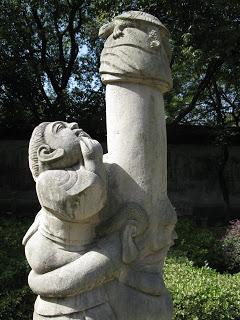You are about to write a poem. It's a poem that you will perform in front of an audience at a spoken word event. You know most of the people in the audience. You are familiar with the genre and style of poetry which typically garners the best reception. Feeding off laughter is rewarding. Clever quips and nonsense rhymes, with a fair dollop of innuendo, never fail to raise a chortle. A strict meter draws the audience in still further, hypnotises them, like a ritualistic chant. Mesmeric comedy. Subversion is easy. Take a common conception and flip it. Defamiliarisation is your friend. When the words are down you test it immediately on someone to test for laughs. Assuming they respond positively you practice reading it a few times. If you're really committed you memorise it. On the night you perform confidently to much applause.
These examples are simplistic but there is an undeniable urge to write for the audience when you regularly perform at spoken word events. The immediacy of the feedback feeds the desire to please and entertain.
When I was writing the elegy for my grandad's funeral, I was aware of thinking that it would be a good result if the 'audience' cried when I performed it. They did but then most were crying anyway. I was definitely cautious to avoid writing a poem that was flippant or amusing. The imagined audience had a huge impact on the shaping of my writing.
Of course we should consider our audience if we want our poetry to be read or heard. At the very least it seems polite to make it intelligible, for the most part (unless unintelligible writing is what we are doing, as is the case in nonsense poetry).
Personally, I confess to using jokes when I crave attention. If my self-esteem is low I know I can stand behind the mic and perform something which will make people smile. This boosts my confidence. Having a selection of comedy poems with which to entertain means I can get up in front of any audience feeling fairly certain of getting them on side.
Once the audience is smiling, then I bring out the first type of poem. The poems which needed to be written. The poems which require more thought and don't always translate from the page very elegantly. Jokes in poetry are, for me, the sugar coating I work around chewy centres.
Beware the joking poet. She might be about to hit you with something philosophical.
Now, while I head off in search of treasure at the Ashmolean, have an Anglo-Saxon riddle - the precursor to modern performance poetry.
Swings by his thigh / a thing most magical!Below the belt / beneath the folds Of his clothes it hangs / a hole in its front end, stiff-set and stout / it swivels about. Levelling the head / of this hanging tool, its wielder hoists his hem / above his knee; it is his will to fill / a well-known hole that it fits fully / when at full length He's oft filled it before. / Now he fills it again.

